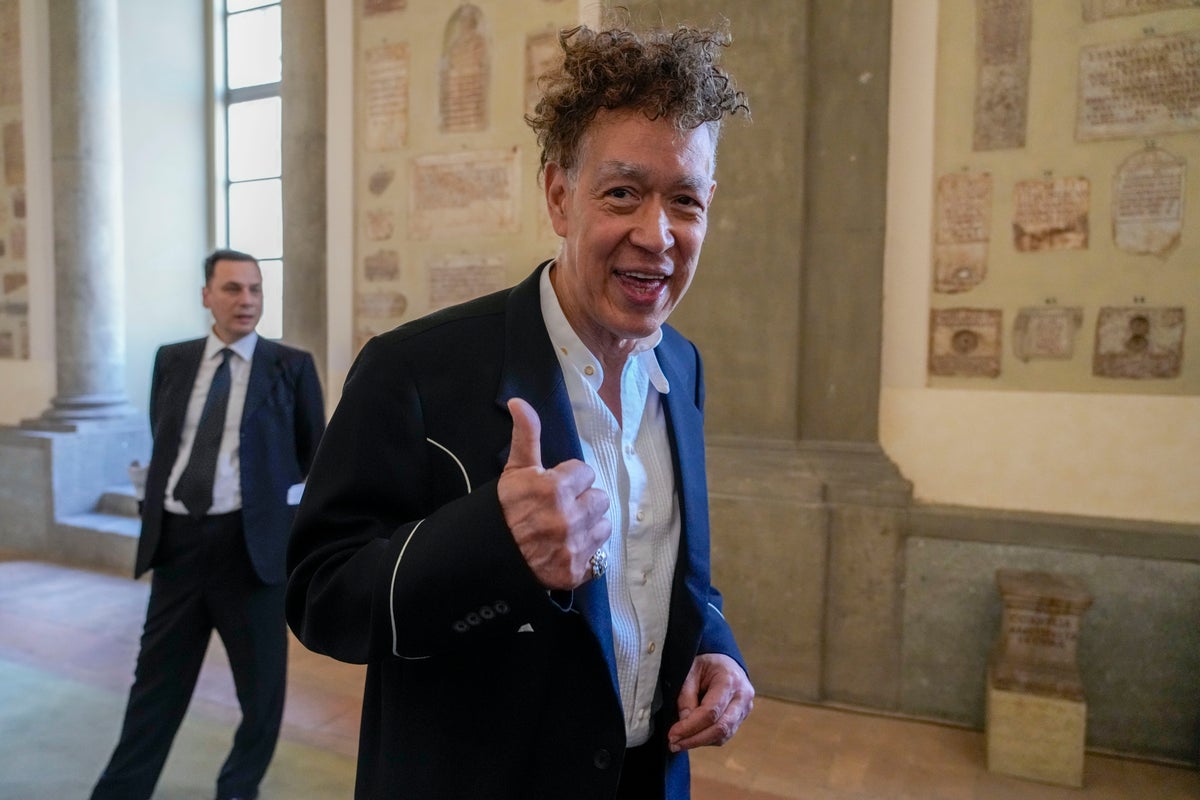
Pope Francis praised artists on Friday as true visionaries who can see, dream and invent as he welcomed 200 artists, filmmakers and writers into the Sistine Chapel to mark the 50th anniversary of the Vatican Museums’ contemporary art collection.
Francis acknowledged that some in the crowd — there was Andres Serrano, of “Piss Christ” fame — sometimes use confrontation to make people think. But he said their aim was to find harmony and beauty.
“You want to reveal reality also in its contradictions and in those things that it is more comfortable and convenient to keep hidden,” Francis said. "Like the biblical prophets, you confront things that at times are uncomfortable; you criticize today’s false myths and new idols, its empty talk, the ploys of consumerism, the schemes of power.”
Pope Paul VI first invited artists into the Sistine Chapel in 1964 in hopes of renewing the friendship between the Catholic Church and artists that, in past centuries, had resulted in such masterpieces as Michelangelo's frescoed chapel itself.
That audience helped give birth, in 1973 with a concert conducted by Leonard Bernstein, to the inauguration of the Vatican Museums' Modern and Contemporary Art collection. The collection, the youngest in the museum, is marking its 50th anniversary this year with an exhibit of some of its most recent acquisitions, including by artists invited to Friday's audience.
In recent years, the Vatican has sought to relaunch the Holy See’s engagement with contemporary culture, participating in the Venice art and architecture biennales and, in the future, literary festivals.
In the audience Friday were such figures as author Jhumpa Lahiri, director Abel Ferrara, whose recent film “Padre Pio” pays homage to the Italian saint, contemporary artist Anselm Kiefer and Italian actor Silvio Orlando, whose portrayal of a fictional Vatican secretary of state in “The Young Pope” and “The New Pope,” made him seem perfectly at home in the Apostolic Palace.
Serrano, for his part, said he was surprised to have even been invited and thrilled when he went up to greet Francis at the end of the audience. He said he introduced himself in Spanish, asked Francis for a blessing, and the Argentine pope playfully slapped his wrist and gave him a thumbs up.
Serrano’s 1987 photograph “Piss Christ” has caused controversy ever since it was first exhibited, given the image depicts a crucifix submerged in urine.
Speaking to reporters after the audience, Serrano said he understood his invitation was evidence “that the church understands that I am a Christian artist and I am not a blasphemous artist. I am just an artist.”
“If ‘Piss Christ’ disturbs you, maybe you should think about what it symbolizes. And what it symbolizes is a very horrific and painful and tragic and inhuman way for a human being to die. And that’s how they crucified Christ,” he said.
Bishop Paul Tighe, the No. 2 in the Vatican’s culture and education ministry, said the inclusion of even provocative artists was evidence of the Vatican’s desire to enter into dialogue with contemporary culture.
“We’re ready for a conversation,” Tighe said. “We want to hear and talk with, meet with, dialog with artists, because we think artists have perspectives and ways of seeing the world that we need to take account of.”
Asked in particular about Serrano, Tighe added: “I think we all just have to work on the presumption of good faith of the artist who is trying to say something, challenge something, and may sometimes have to resort to strong measures to waken us up.”







